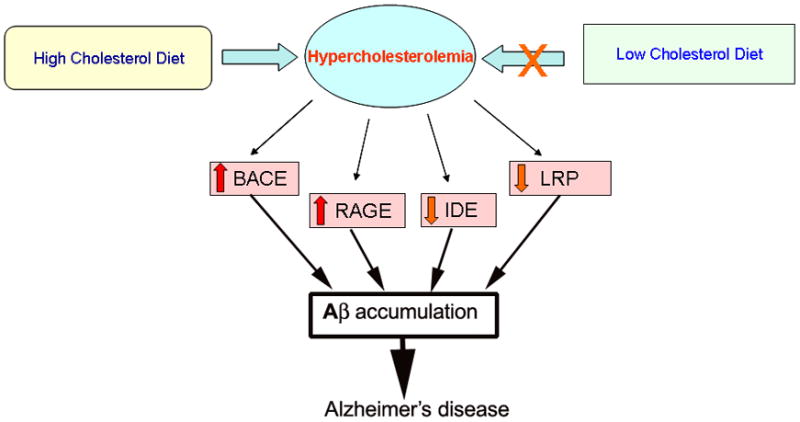Fig. 8.

A schema showing the possible mechanisms involved in hypercholesterolemia-induced Aβ accumulation. A high cholesterol diet increases blood cholesterol levels (hypercholesterolemia) and leads to increased levels of BACE1 and RAGE, and decreased levels of IDE and LRP-1. Increased levels of BACE1 accelerate processing of APP to Aβ, and increased levels of RAGE result in increased transport of Aβ from the circulation into the brain. Decreased levels of IDE in the brain lead to a decreased cleavage of Aβ and decreased levels of LRP-1 result in reduced clearance of Aβ from the brain out to the circulation. All these changes triggered by hypercholesterolemia may contribute to increased levels of Aβ in the brain. Accumulation of Aβ potentially causes neurodegeneration and may ultimately contribute to the pathogenesis of Alzheimer’s disease. Reducing hypercholesterolemia or maintaining normal levels of cholesterol in the blood would prevent changes in BACE1, RAGE, IDE and LRP-1, thereby precluding Aβ accumulation and subsequent deleterious effects.
